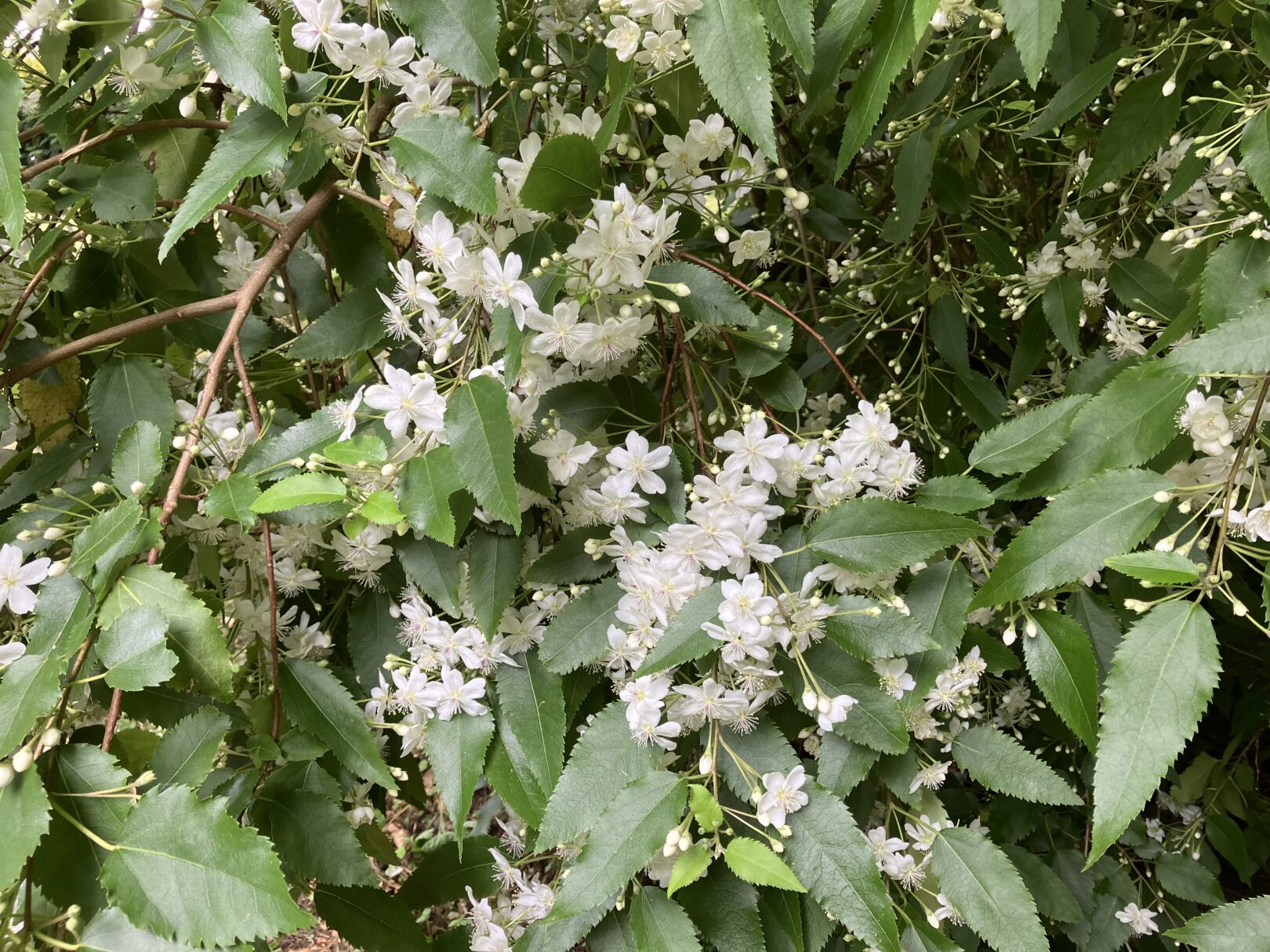#450 (N19) LACEBARK
Hoheria × ‘Glory of Amlwch’

Planted: 2008
This shrub is on the north side of the Malus Avenue.
| Distribution: | A cross between Hoheria glabrata and Hoheria sexstylosa which originated in the garden of Dr Jones, Amlwch, Anglesey. Hoheria are native to New Zealand. The genus name is a latinization of the Māori language name, ‘houhere’. That name, as well as lacebark and ribbonwood, are often used as common names. |
| Planting Date: | October 2008, purchased from Pan-Global Plants, Frampton-on-Severn, Gloucestershire. |
| Growth Habit: | An evergreen shrub, or small tree. Glabrous except on the young shoots, flower stalks and calyx, which are more or less pubescent. |
| Bark: | |
| Leaf: | 8 to 13 cm long 4 to 6 cm wide, ovate, firm in texture, edged with large sharply pointed unequal teeth. |
| Flowers: | Very abundant pure white produced inclusters from the leaf axils eac flower 2 to 2.5 cm across with spreading, narrowly oblong petals and numerous stamens. |
| Fruit: | |
| Toxicity: | |
| Potential tree size: | 3 to 9 m tall. |
| Uses: Ornamental | |
| Plant Hunter: | |
| Introduction Date: . | Hoheria were introduced to Ireland in the early 1900s but not considered sufficiently hardy for planting in England. Hybrids have been shown to be much hardier |
| Anecdotes and Comments: | Awarded the Royal Horticultural Society Award of Merit in 1960. |